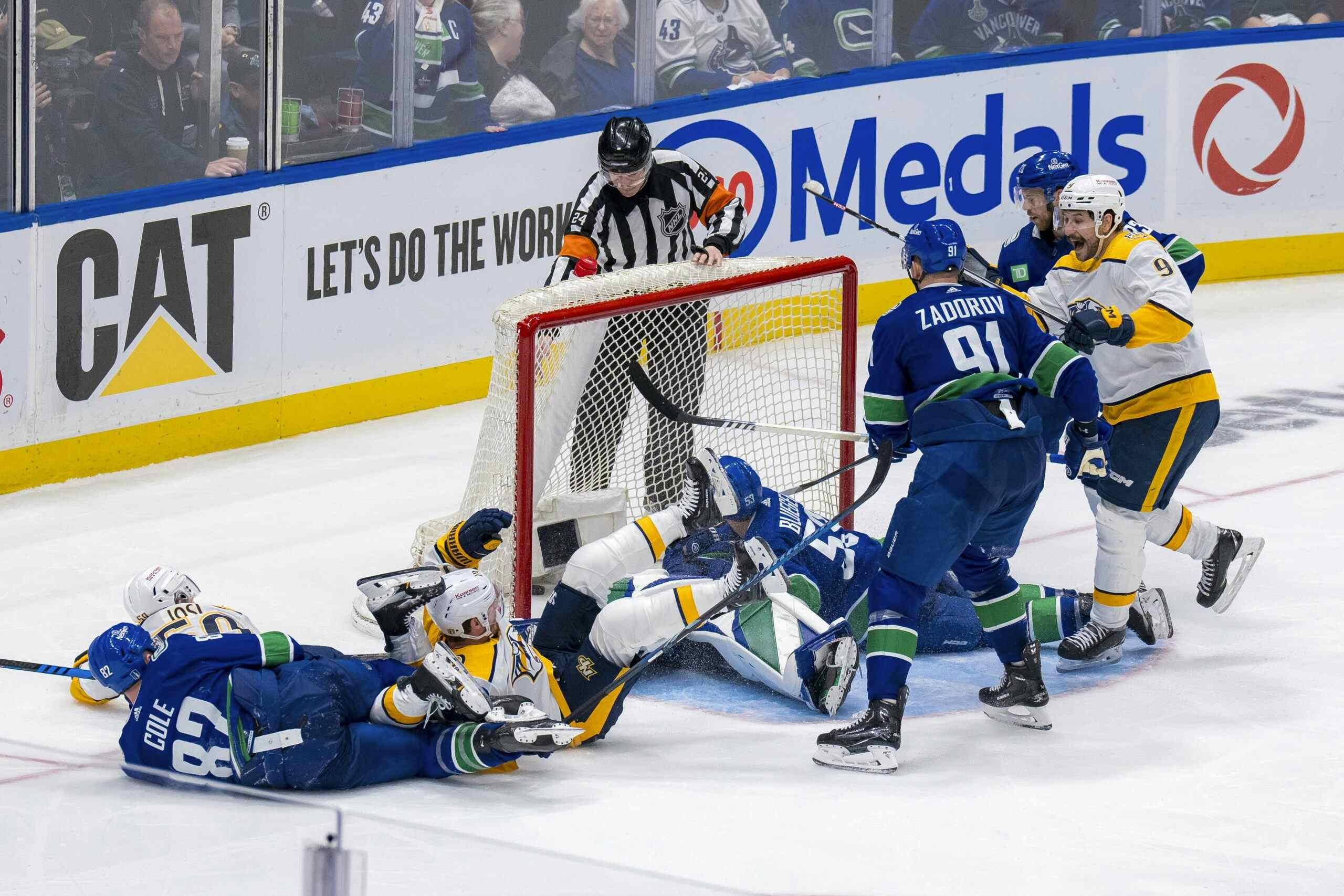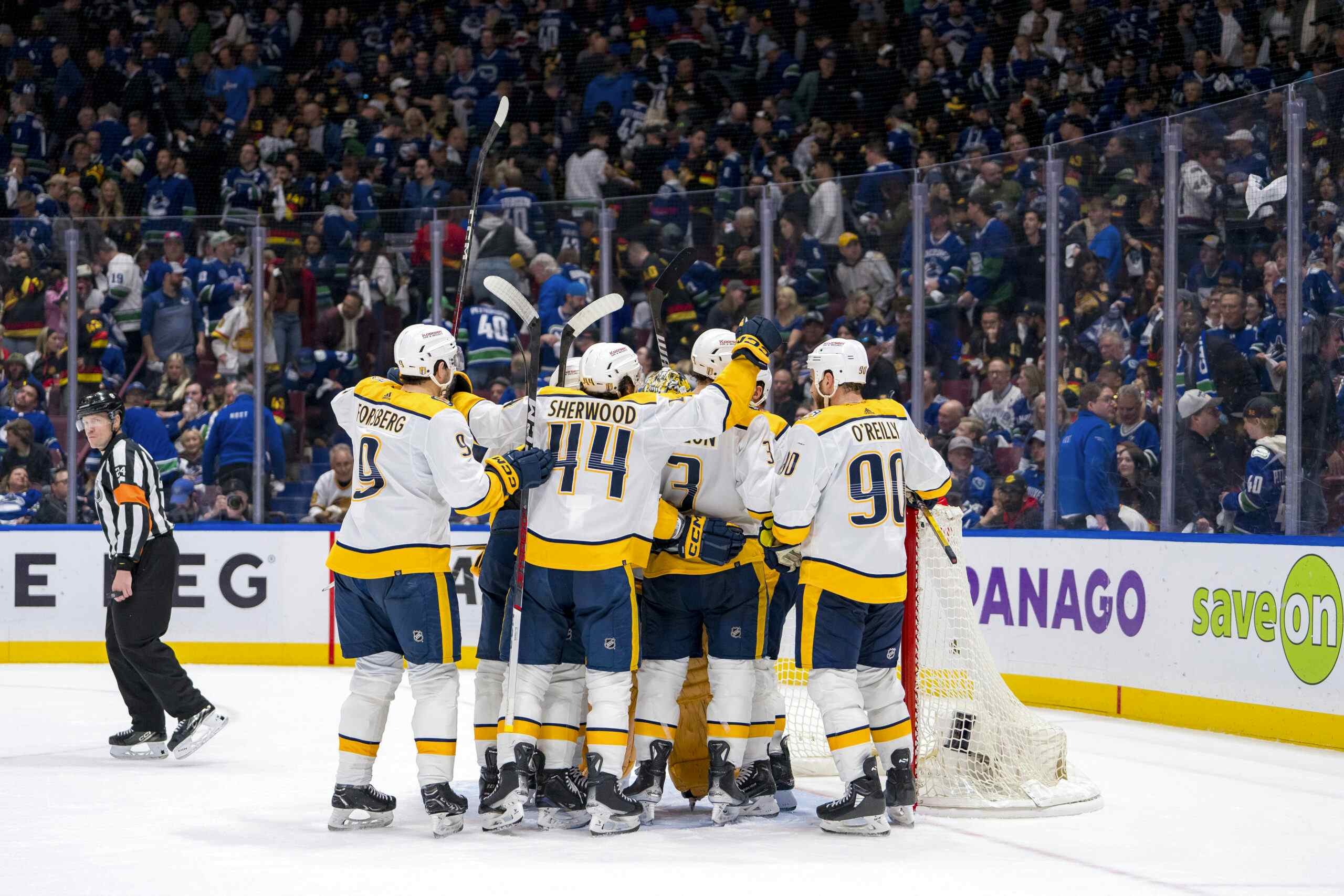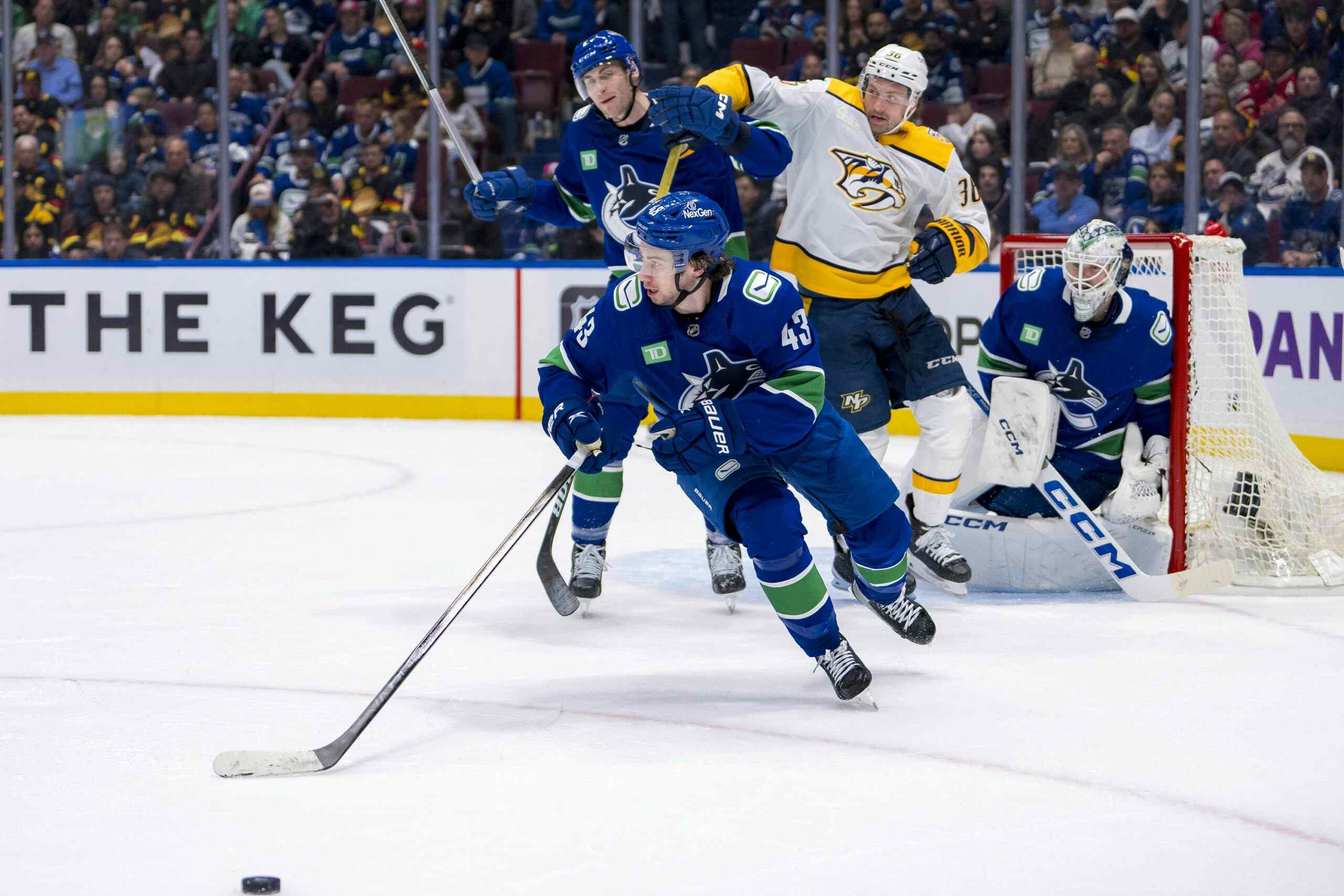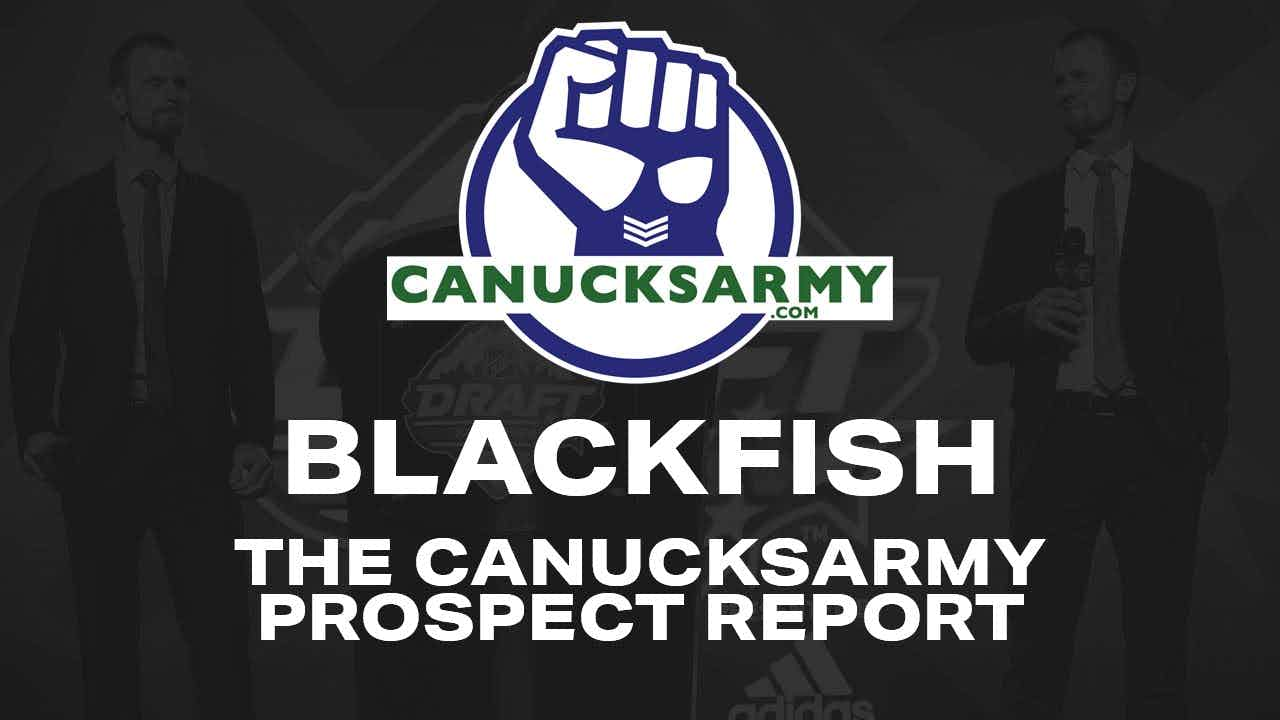Trade Market: Additional First Round Draft Pick Edition
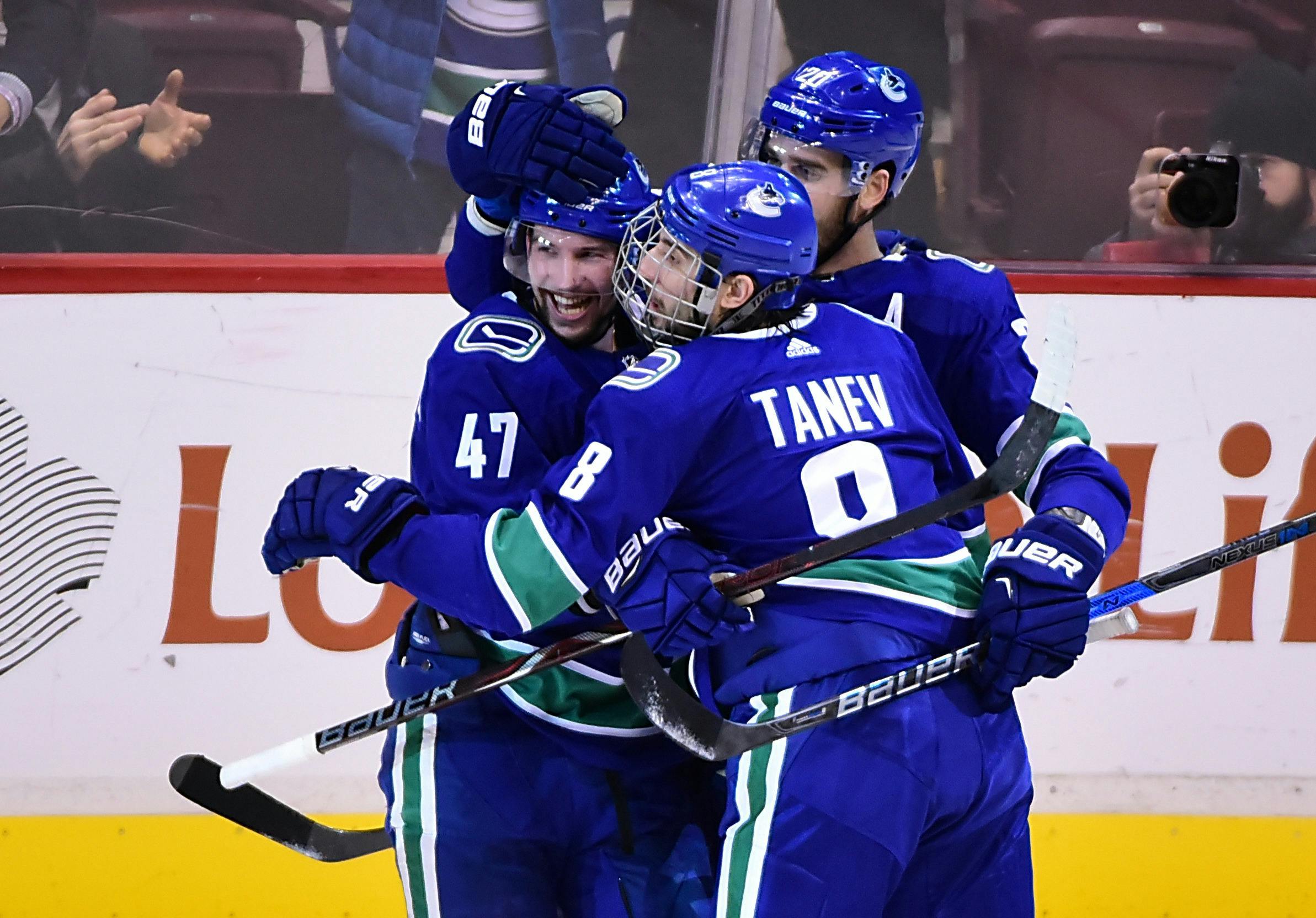
With the 2019 NHL Entry Draft scheduled to take place in Vancouver on June 21 and 22, it’s all but certain that the Canucks will not be trading their 2019 first round draft pick—no matter what position they occupy in the standings come Trade Deadline day. GM Jim Benning referred to the idea as a “non-starter” back in August, and there’s no reason to believe that anything has changed since then. The optics of the host team not drafting on the first day of the draft—especially in a hockey-mad market like Vancouver—are just too bad to make any deal that involves the first rounder worthwhile.
In fact, there are many in the fanbase who would much prefer it if Benning and Co. sought out additional first-round picks for the upcoming draft—even if the Canucks remain in a playoff position. This edition of the Trade Market marks a twist on the column concept as we look around the league for teams that might be willing to give up their picks, and what the Canucks might have to give up to close a deal.
Under What Scenarios Should The Canucks Seek Out Additional Firsts?
There are two ways to answer this question. Those with a long-term perspective might rightly argue that the Canucks are best served by seeking out additional draft picks under ANY scenario—even if the team leads the Pacific Division come the deadline. The early dominance of Elias Pettersson may have hit the fast-forward on the rebuild, but the rest of the roster is still a far cry from a genuine Stanley Cup contender. With blue-chip prospects like Quinn Hughes, Jonathan Dahlen, and Olli Juolevi incoming, the Canucks’ best days are yet to come, and the front office would do better to continue building toward the future rather than focusing on a short-lived playoff run.
That being said, the above sentiment is probably just a touch too idealistic. The realities of the Vancouver hockey market—and the rumoured proclivities of the Acquilinis—dictate that a Canuck team in a playoff position would never “sell” at the Trade Deadline. Once again, optics come into play, thanks to the inevitable bad press that would come with hobbling a postseason-bound squad by trading a roster player for future assets. There’s also the potential loss of playoff revenue to consider, and that’s enough to reasonably argue that the Canucks will only trade for additional first-round picks midseason if they’re out of a playoff position.
Of course, as soon as the 2018/19 season ends—no matter the results—all bets are off, and the Canucks will also have the time between the Stanley Cup Finals and the Entry Draft to pursue a trade.
The Benefits Of Having More Than One First Round Pick
The impact on the local fanbase is obvious, as the Canucks making multiple picks in the first round would undoubtedly increase buzz and anticipation in Vancouver. There’s also Jim Benning’s solid record of selecting quality NHLers in the first round—even if they’re not always the absolutely best possible selections—and he’s yet to totally flub an early pick. Benning has shown that he can find big league talent anywhere in the first round, so the more picks the better. More quality talent drafted now means more quality players hitting their prime when the team becomes competitive in a few years.
The Best Teams To Target In A Trade
If first-round draft picks are so valuable, it stands to reason that most other teams would be reluctant to give them up. The organizations that might be willing can be split into two categories—those that are guaranteed Stanley Cup contenders and those that currently have multiple first round picks.
Any team can make a run at the NHL’s grand prize, but the list of Guaranteed Stanley Cup Contenders—and thus, teams that will definitely be “buying” at the Trade Deadline—is relatively large in 2018/19.
In the Eastern Conference—always a better fit for trades—the field of contenders includes the Boston Bruins, the Columbus Blue Jackets, the Toronto Maple Leafs, and the Tampa Bay Lightning. One can probably add the Pittsburgh Penguins and Washington Capitals to the list, despite their so-so starts.
In the Western Conference, the field is much more muddled but contains at the very least the Nashville Predators, the San Jose Sharks, and the Winnipeg Jets. The Colorado Avalanche, buoyed by the highest scoring line in the NHL, can probably be added to the mix. That makes for a total of ten buyers at the 2019 Trade Deadline, accounting for a third of the league—not a bad market at all.
The list of teams with multiple first-round draft picks is much smaller—it’s just the aforementioned Avalanche at the moment. This makes Colorado by far the best potential target for a first round-seeking trade, as they can freely deal their own selection while retaining Ottawa’s likely lottery pick.
The Buffalo Sabres will likely end up with three picks in the first round–dependant on conditions from previous deals with San Jose and St. Louis that will almost certainly be fulfilled—so they could be a potential top target if Rasmus Dahlin and Jack Eichel push them to playoff contention. The New York Rangers will also receive an additional first rounder if Tampa Bay wins the Cup, but they’re firmly within a rebuild at the moment.
Potential Trade Chips
With a large field of teams that might be willing to trade a pick in the first round of the 2019 NHL Entry Draft, the question is raised of what the Canucks have to give up that would bring back something of such value. The majority of the organization’s top assets—names like Pettersson, Boeser, Horvat, and Hughes—are so far off the table that they aren’t worth mentioning. Still, the Canucks have a handful of Potential Trade Chips that could feasibly return a first round pick.
Chris Tanev
A previous edition of the Trade Market took a look at the potential interest in Tanev around the league and found it to be reasonably high. Combine that with Tanev’s reputation as one of the best defensive defensemen in the game and a solid—if unspectacular—top pairing player, and one might assume that Tanev’s value could be measured in multitudes of first round draft picks. Unfortunately, his history of injuries probably means that a single mid- to late first round draft pick—plus an additional goodie or two—represents Tanev’s true market value. Tanev has another year left on his bargain contract, so the Canucks could feasibly trade him at any point between now and the Entry Draft.
Alex Edler
Edler has made it perfectly clear that he does not wish to leave Vancouver, but with the Sedins gone and the team undergoing a youth movement, this might be the year he finally does it. If the upcoming UFA does waive his No Trade Clause at the deadline, he’ll almost certainly return a first-round draft pick—at the very least. The 32-year-old is a minute-munching machine who has been playing some of his best two-way hockey over the past two seasons, and he would represent a significant improvement on nearly any contender’s top-four defence depth.
Brandon Sutter
Despite his unpopularity with certain sections of the fanbases, Sutter has a few things going for him that give him value around the league. He’s a center with strong defensive acumen that chips in offence at a reasonably consistent pace. Center depth is probably the most valued commodity for any would-be contender in the modern NHL, and that could feasibly create enough of a market for Sutter to return a late first round pick—though he’s unlikely to be the best center available. Sutter does have a full NTC—which turns into a modified one next season—that could complicate matters, as could the remaining two years on his contract. If the Canucks were to retain salary on Sutter, it would drastically increase his value, but that money would be on the books for the next two seasons. In other words, Sutter returning a first rounder is a bit of a long-shot.
Sven Baertschi
Baertschi is just 26 years old, putting him just outside the range of the rest of the burgeoning top-six forward core. As such, Baertschi is the most likely member of the group to be moved—though the Canucks don’t have much incentive to do so unless the return is suitably impressive. If Baertschi returns from injury and continues to score at the roughly 25-goal pace he has for the past two seasons, one could easily envision him returning a first round pick from a contender seeking an offensive boost to their roster. That being said, a late first rounder turning out to be as good a player as Baertschi is somewhat unlikely, so it probably doesn’t make sense to deal him for anything less than a pick in the teens.
In Other Words
It’s probably Tanev or Edler or bust when it comes to trading for additional first-round draft picks.
Recent articles from Stephan Roget

